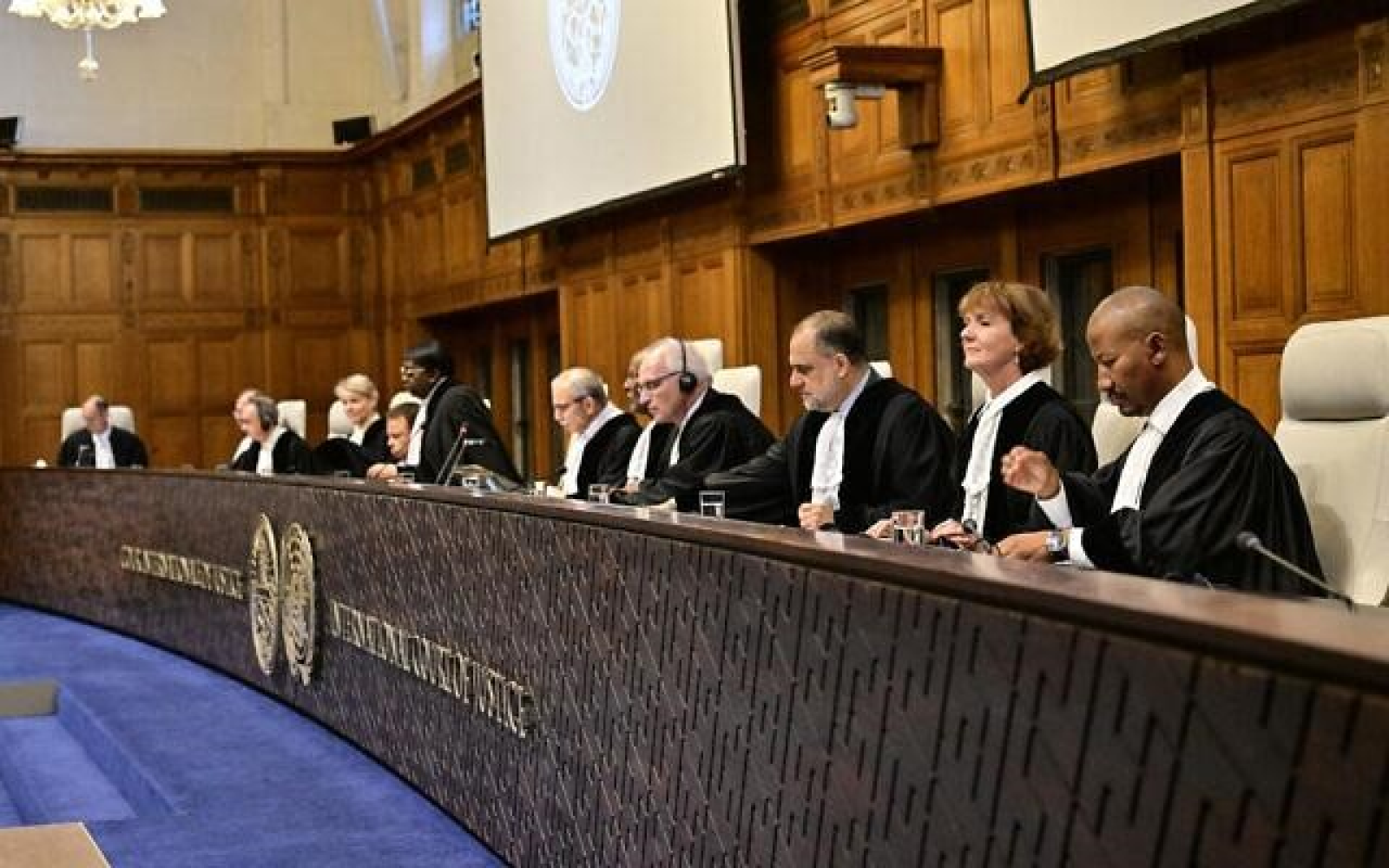
RADAR SWEEP
Geopolitics Newsletter May 20 – 26, 2024
The International Court of Justice calls for Israel to cease its military offensive in Rafah
On Friday, the United Nations’ top court ordered Israel to halt its military offensive in Rafah but stopped short of calling for a cease-fire. So far, approximately one million of the 1.4 million Palestinians sheltering in Rafah have already evacuated, following orders from the Israel Defense Forces (IDF). Israel will likely not comply with the ICJ’s command, as Israeli Prime Minister Benjamin Netanyahu’s government called the ruling “false, outrageous and morally repugnant” and kept its stance that the military has not and will not target civilians.
The ICJ also ordered Israel to open the Rafah border crossing with Egypt, which is a crucial entry point for humanitarian aid. Though the court’s rulings are binding and final, the ICJ does not have the means to enforce them, and other ICJ rulings have been ignored in the past.
Following its pivot to Rafah, Israel will probably experience increasing tensions with other countries. So far, Norway, Ireland, and Spain announced this week that they would recognize a Palestinian state based on the borders established before 1967. Netanyahu is also facing domestic pressure to end the war; thousands of Israelis have participated in weekly demonstrations calling for the government to work out a deal to bring the hostages home, as they fear time is running out. Read more.
Indo-Pacific Geopolitics
Taiwan’s new president takes office – May 20
Taiwanese President Lai Ching-te of the Democratic Progressive Party (DPP) took office, after winning the presidency in a January election. In his speech, Lai championed Taiwan’s sovereignty and called on Beijing to end its intimidation of the island. Read more. [EXTERNAL]
Joint South Korea-UK AI summit concludes – May 22
The UK co-hosted the AI Seoul Summit with Korea. While advocating for human-centric AI, officials with the UK and South Korean governments prioritized innovation and self-regulation to compete with China and the U.S. South Korea plans significant AI investment and semiconductor development, aiming to maintain competitiveness against global leaders. Read more.
G7 finance ministers issue warnings about China trade war risks – May 24
The G7 summit took place in Italy, where leaders expressed the need for the group to remain united in the face of China’s “unfair” industrial policies. European leaders warned of the risks of a trade war after recent U.S. tariff hikes against Beijing. Read more. [EXTERNAL]
Diplomacy / Defense / Security
SCO Foreign Ministers meet in Astana – May 21
Foreign Ministers of the Shanghai Cooperation Organization convened in Astana, Kazakhstan. Discussions revolved around bolstering multilateral cooperation, particularly in economics, politics, culture, and counterterrorism. With the July SCO Summit approaching, attention is centered on preparations, anticipating the presence of Chinese President Xi Jinping and Russian President Vladimir Putin. Read more.
Kenyan President Ruto visits United States – May 23
Kenyan President William Ruto visited Washington D.C., marking the first state visit by an African leader under the Biden administration. Discussions with President Biden centered on strengthening US-Kenya relations, particularly in democracy promotion and counterterrorism efforts. Kenya seeks increased support for green energy initiatives, aligning with US interests in climate action and expanding diplomatic ties across Africa. Read more.
Heads of state summit for the Commonwealth of Independent States begins – May 24
The Commonwealth of Independent States (CIS) Heads of Government summit convened in Turkmenistan. Despite efforts to increase the bloc’s influence, disputes between Azerbaijan and Armenia hindered cooperation prospects. Read more.
National Politics / Finance
Spanish PM Pedro Sanchez addresses parliament on wife’s alleged corruption – May 22
Spanish Prime Minister Sanchez addressed parliament over his wife’s corruption probe. Sanchez temporarily stepped down from his duties and accused right-wing factions of trying to undermine his political authority. Read more.
Turkiye’s central bank releases May interest rates – May 23
Last week, Turkiye’s central bank leadership announced an interest rate decision for May. Despite economic challenges, the rate remained stable at 50%, aligned with the government’s strategy. Analysts foresee this trend persisting, with a potential decrease to 45% later in the year. However, inflation is expected to rise, affecting citizens’ purchasing power despite economic growth. Read more.
Global Supply Chain Forum takes place – May 21-24
Government officials, business leaders, and experts met in Barbados to talk about supply chain links to climate change, digitalization, food security, and transport costs. Read more. [EXTERNAL]
The Week Ahead
77th World Health Assembly to begin in Switzerland – May 27
The summit will be attended by delegations from all World Health Organization (WHO) member states. An agreement for a global pandemic treaty is expected to be the central subject of the event. Read more.
Georgia’s parliament will decide whether to override presidential veto on foreign agents law – May 27
The law, which targets media and non-governmental organizations that draw more than 20 percent of their money from abroad, was vetoed by President Salome Zurabishvili. Read more.
IISS Shangri-La Dialogue to start – May 31
The conference, which has become a critical forum for the exchange of views by international security policy decision-makers, will take place in Singapore. Read more.
Madeline McQuillan is an Analyst for Foreign Brief and a contributor to the Daily Brief. Her expertise is in European politics and transatlantic relations. She holds a Master of Science in European and International Public Policy from the London School of Economics.
Alex Rannou is a Policy and International Affairs Analyst with a Master’s in International Cooperation & Public Policy, focusing in Latin America-Asia Pacific relations and Global South dynamics.

